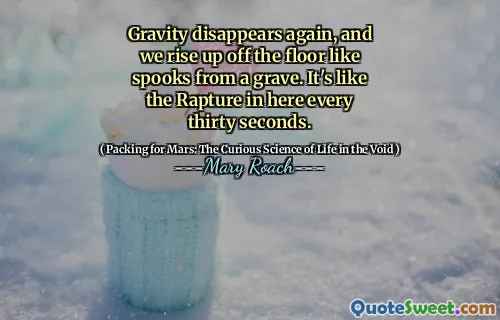Upon the occasion of history's first manned flight - in the 1780's aboard the Montgolfier brothers' hot-air balloons - someone asked Franklin what use he saw in such frivolity. What use, he replied, is a newborn baby?
In "Packing for Mars," Mary Roach explores the intriguing and often humorous aspects of space travel and its preparation. She uses historical anecdotes, such as the first manned flight in the 1780s with the Montgolfier brothers' hot-air balloons, to illustrate the skepticism that surrounds new and seemingly frivolous innovations. Benjamin Franklin's witty response to a question about the usefulness of such flights draws a parallel to the potential that comes with new ventures, much like the potential seen in a newborn baby.
Roach's narrative highlights the importance of curiosity and exploration, suggesting that even the most unassuming beginnings can lead to significant advancements in knowledge and technology. The book delves into the science behind space travel and the quirky elements that accompany it, while also addressing the broader implications of human exploration. Through humor and insight, Roach invites readers to appreciate the sometimes absurd yet essential nature of curiosity in driving progress.






